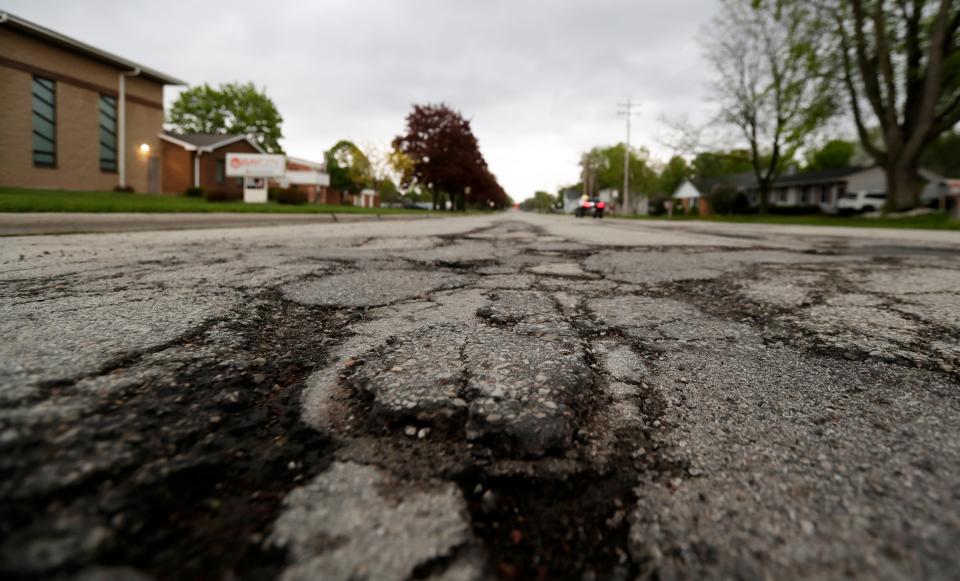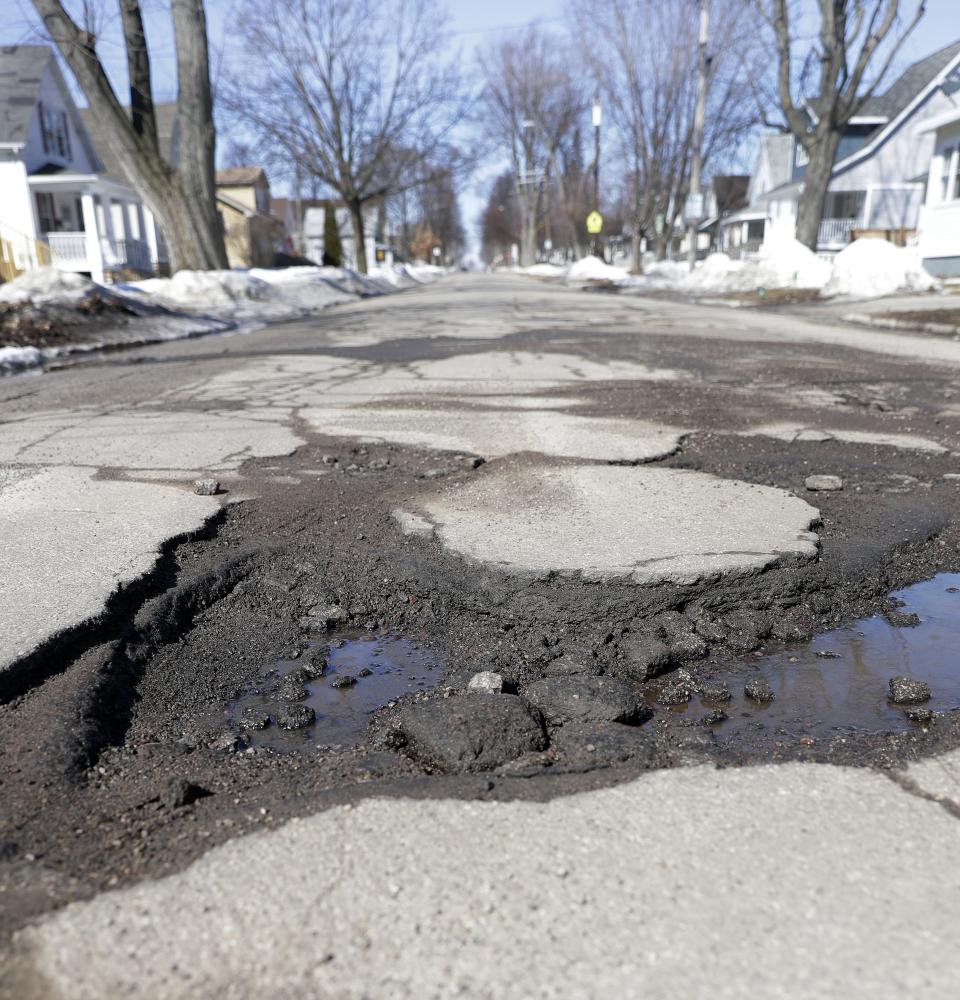Green Bay to study replacing wheel tax with a quarterly utility fee for road work
GREEN BAY - Green Bay has become the largest Wisconsin city to consider whether to create a transportation utility to pay for road construction costs.
The utility would treat roadwork like water and sewer operations. It would replace the current $20-per-car wheel tax city residents have paid for five years with a quarterly fee added to their utility bill. Unlike the wheel tax, all property owners would pay the the fee used to fund road construction.
Wisconsin cities, villages and towns have turned to transportation utilities as they seek ways to keep up the cost of road construction and maintenance. At least seven Wisconsin communities created transportation utilities; several more communities are in various stages of consideration.

The approach, though, is the subject of an ongoing legal challenge.
Still, on Tuesday, Green Bay added its name to the list when the City Council unanimously approved spending $100,000 to have raSmith study the idea and come up with more concrete figures on what customers might pay as well as the city's full, true cost to maintain and repair roads.
"We can actually see what it costs the city to maintain roads at a pace that would maintain the streets at a level with keeping the streets viable," said Council Member Jim Hutchison, who supported the study.
Transportation utility would replace wheel tax with charge like water, sewer service
A transportation utility would replace the wheel tax with a charge similar to property owners' quarterly water, sewer and stormwater utility charges. The transportation fee would be based on the utility's overall budget and divided among all property owners, including tax-exempt properties.
The utility could be funded at a level that could reduce the amount the city needs to borrow and repay to cover road construction costs. Or it could generate enough to replace the wheel tax. It would be up to the community.
Residential, commercial, industrial and tax-exempt property owners would all pay a flat fee. Each property would also be assessed a charge based on the volume of vehicle trips it generates on an average weekday. A trip is defined as any time a vehicle enters or leaves a property, so a property like a grocery store or strip mall would see a higher volume charge than a single-family home.
Wheel tax doesn’t cover all Green Bay road construction costs
The council approved the wheel tax in June 2018 and began to collect the tax in 2019 when car registration renewals began. Cars and trucks of 8,000 pounds or less are subject to the wheel tax, regardless of if the vehicle is for personal or business use.
Cars with "antique," "collector" and P.O.W. plates do not have to pay the wheel tax.
The city collects about $2 million each year via the wheel tax. It has been able to repair an average of 6.25 to 6.63 miles of streets each year since the wheel tax was enacted, an increase from the average of 4.28 miles per year in the 10 years prior to the wheel tax.
Steve Grenier, the city’s director of Public Works, said the current wheel tax does not cover all of the city’s road construction costs and that a transportation utility could fund a lot more work based on the direction the council might take.
“The utility’s budget would determine the fee,” he said.
What would property owners pay? That’s not known yet.
The study will determine both the scope of the utility and how the various property types would be charged. It would set out the formula to determine the flat charge all properties would pay and a cost-per-trip to calculate the vehicle activity charge per property.
Those figures will depend on the transportation utility’s annual budget, which would be up to city staff and the council to set each year. Council member Brian Johnson said he looks at the utility as a “funding alternative” for road projects, but that the community needs more details to decide how to proceed.
“There’s a lot to contemplate here and the political discourse will come once we have more information,” Johnson said.

How long will this study take?
The study will be completed in six months to a year, Grenier estimated.
How soon could the transportation utility be created?
Grenier said the soonest the utility study could be completed, reviewed, discussed with council and enacted would be 2025. It's not clear whether the city would ready to charge property owners the transportation utility fee at the beginning of 2025, though.
What other Wisconsin communities have studied creating a transportation utility?
The cities of Neenah and Wisconsin Rapids, the villages of Harrison, Kimberly and Pewaukee and the town of Gibraltar have all adopted transportation utilities.
Currently, the city of Fort Atkinson and village of Greenville are considering transportation utilities.
Transportation utility consideration has been put on hold in the cities of Appleton, Oshkosh, Hudson, Waupun and Wauwatosa and the villages of Little Chute, Greendale and West Milwaukee.
The villages of North Fond du Lac, Elm Grove and Winneconne plus the cities of Clintonville, Janesville and Columbus all declined to create utilities.
Is it legal for communities to create a transportation utility?
The short answer is towns do not have the capability, but villages and cities do.
There are two key court cases to know about transportation utilities.
The Wisconsin Supreme Court earlier this year struck down the town of Buchanan’s transportation utility, saying the utility charge amounts to a tax and thus exceeds state-imposed levy limits.
But a Waukesha County Circuit Court this spring ruled the village of Pewaukee has the authority under “home rule” law to create a transportation utility and charge a fee, that the charge is a fee not a tax, and that the utility does not run afoul of any existing state law.
Wisconsin Manufacturers and Commerce filed the original legal challenge to Pewaukee’s utility charge and has appealed the circuit court’s decision.
Contact Jeff Bollier at (920) 431-8387 or jbollier@gannett.com. Follow him on Twitter at @JeffBollier.
This article originally appeared on Green Bay Press-Gazette: Green Bay largest Wisconsin city to consider utility to fund road work

